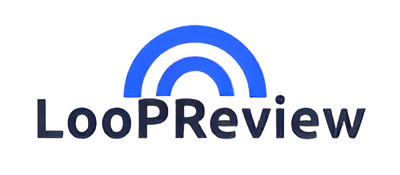*FTC Disclosure:All products recommended by LooPReview are selected by our editorial team, independent of our website. Some of our stories include affiliate links. If you buy something through one of these links,we may earn an affiliate commission.*
Upwork is one of the oldest and most popular freelance marketplaces, connecting millions of employers and independent contractors around the world. Before its major merger in 2015, the platform operated as two separate sites—Elance and oDesk—both of which helped shape the modern freelancing landscape.Today, Upwork is a classic example of what the industry calls a “generic bidding marketplace.” This model remains widely used, but it’s not without flaws. Over the years, both freelancers and clients have pointed out issues ranging from intense competition and pricing pressure to inconsistent work quality. Still, for many, the platform remains a convenient entry point into remote work.
If you’ve never tried Upwork before, here’s the quick picture: it’s a global hub where freelancers of all kinds—writers, designers, developers, marketers, translators, and more—can connect with clients looking for remote talent. If a job can be done online, someone on Upwork is hiring for it.Of course, convenience comes with a price. Upwork takes a 10% fee from your earnings (yes… it stings a bit). However, in exchange, the platform handles the administrative side of freelancing: contracts, secure payments, dispute resolution, deadlines, and even time tracking. For many freelancers, especially beginners, having these systems in place can take a lot of stress off their shoulders.
Key Features
Upwork stands out for its global and diverse talent pool, connecting clients with freelancers from virtually every corner of the world. This international reach makes it easy to find professionals with highly specific skills across countless job categories—including writing, design, software development, and digital marketing. With such variety, businesses can source talent for almost any project or niche requirement.
The platform also simplifies the hiring process through robust search filters and flexible contract options. Clients can narrow their search based on skills, experience, location, and budget, making it easier to identify the right match. Upwork supports both hourly and fixed-price contracts, allowing businesses to choose the payment model that best aligns with their workload, timeline, and financial plans.
To support smooth collaboration, Upwork offers several built-in tools, such as the Work Diary for hourly contracts—a feature that logs hours and captures periodic screenshots for accountability. Messaging, file sharing, and project tracking tools make it easy for clients and freelancers to coordinate tasks. Additionally, Upwork’s Payment Protection system ensures freelancers are paid fairly and clients receive the work they expect, fostering a secure and trustworthy environment for both parties.
How Upwork works
Upwork is what’s known as a generic bidding freelance marketplace, meaning it connects clients with freelancers who can perform virtually any type of remote work. Unlike specialized platforms—such as Lemon.io for developers or 99designs for designers—Upwork opens its doors to all kinds of talent, from writers and marketers to engineers and virtual assistants. Clients post projects, and freelancers who find the job appealing can apply. This makes it a versatile, wide-reaching marketplace for businesses and independent professionals alike.
The “bidding” aspect refers to Upwork’s open market system. Instead of setting universal pricing, Upwork allows freelancers to determine their own rates, whether hourly or fixed-price. When a client posts a job, freelancers browse available listings and send proposals outlining their skills, experience, and most importantly, their bid. Because freelancers greatly outnumber clients on the platform, it’s common for job posts to receive a flood of proposals—some priced very low, others surprisingly high. This can make the hiring process both flexible and overwhelming, depending on the client’s expectations.
Finally, Upwork is considered a non-vetted marketplace. While the platform does review freelancer applications, its main goal is simply to balance supply across different skill categories—not to prove whether someone is truly qualified. Upwork does not require tests, interviews, or verified credentials before allowing freelancers onto the platform. As a result, clients must carefully evaluate applicants themselves, which can be time-consuming but also offers access to a massive, diverse pool of global talent.
Upwork Pros
Before pointing out its shortcomings, it’s important to recognize the major role Upwork—and its predecessors, eLance and oDesk—played in shaping the modern freelancing landscape. These two early platforms proved that the world was ready for online freelance marketplaces, and their merger laid the foundation for what Upwork is today. By connecting millions of freelancers directly with clients across the globe, Upwork helped legitimize remote work long before it became mainstream.
The platform’s impact has been significant enough to take the company public in 2018, reaching a valuation of $1.6 billion at its IPO. This milestone reflects just how transformative Upwork has been for both businesses seeking flexible talent and individuals pursuing freelance careers. For many freelancers, Upwork has offered an accessible entry point into international work opportunities that would have been unimaginable a decade earlier.
That said, the freelance marketplace has evolved dramatically. Expectations from both clients and freelancers are higher than ever, and competition among platforms has grown. While Upwork deserves credit for pioneering the industry, the needs of today’s freelancing community often exceed what the platform currently provides—highlighting areas where Upwork struggles to keep up with newer, more specialized competitors.
User Ratings and Reviews

Upwork’s rating system plays a crucial role in maintaining trust and transparency across the platform. After each project, clients can leave feedback and rate freelancers based on the quality of their work, communication, and professionalism. These ratings help future clients quickly identify dependable and skilled freelancers, while freelancers build their credibility and strengthen their profiles through consistent positive feedback.
The review process works both ways—freelancers can also rate and review clients. This two-way feedback system creates accountability for both sides, helping freelancers avoid difficult clients and enabling more informed decisions before accepting new work. To further highlight excellence, Upwork awards badges such as Top Rated and Rising Talent to freelancers who consistently deliver strong results and maintain high standards of professionalism. These distinctions make it easier for clients to find high-quality talent quickly.Of course, even with a transparent review system, disagreements can happen. To address this, Upwork offers a dispute resolution process designed to mediate conflicts between clients and freelancers. This mechanism provides a structured way to resolve issues fairly, ensuring that both parties have support when challenges arise during a project
User Experiences

Many users appreciate Upwork for its intuitive interface, vast global talent pool, and the ability to find professionals with highly specific or niche skill sets. Positive reviews often mention smooth collaborations, fast turnaround times, and how Upwork makes remote work accessible for both freelancers and clients. For many, the platform has served as a reliable bridge for building long-term working relationships across borders.
However, not all experiences are seamless. Some users note that the platform’s competitive nature—especially in popular fields—can make it difficult for freelancers to stand out, with clients sometimes opting for the lowest bid. Others point to occasional issues with communication or unclear project expectations, which can create friction between clients and freelancers. These challenges highlight the importance of clear job descriptions, transparent expectations, and consistent communication.
Despite these hurdles, Upwork has made meaningful strides in creating a secure and trustworthy environment. Features like identity verification and escrow protection for fixed-price contracts provide peace of mind for both sides, ensuring payments and deliverables are handled fairly. Over time, Upwork has continued to evolve by introducing updates, refining its tools, and responding to user feedback—demonstrating a commitment to adapting to the changing needs of the freelance economy.
Upwork Membership Tiers

Upwork offers a tiered membership structure designed to cater to diverse users. The Basic membership is an entry point, providing access to a global talent pool and basic features. Freelancers may find the Plus membership appealing, as it enhances their visibility through a highlighted profile and allows them to see competitor bids. Pro and Enterprise memberships target businesses and large enterprises, offering advanced features like dedicated account managers, project tracking, and consolidated billing.
The Plus membership, with its additional cost, is often debated among freelancers for its value proposition. While some argue that the increased visibility justifies the expense, others question its impact on securing more projects. Pro and Enterprise memberships, on the other hand, have gained popularity among businesses seeking a higher level of service, emphasizing Upwork’s scalability to meet varying user needs.
Upwork Platform Accessibility

In an era where remote work is increasingly prevalent, Upwork’s accessibility through the mobile app has become crucial. The Upwork mobile app offers a user-friendly interface, allowing freelancers and clients to stay connected on the go. However, some users note differences in functionality compared to the desktop version, raising questions about the completeness of the mobile experience.
Despite occasional limitations, the mobile app has garnered positive reviews for its convenience and responsiveness. The ability to communicate, submit proposals, and track projects from a mobile device adds a layer of flexibility that aligns with the dynamic nature of freelancing.
Upwork Community and Resources

Upwork’s commitment to community building is evident through its forums and educational resources. The community forums serve as a hub for freelancers and clients to share insights, seek advice, and discuss industry trends. This communal aspect contributes to a sense of belonging and shared knowledge, fostering a collaborative environment.
Educational resources, including webinars, tutorials, and blog posts, further empower users with the tools and knowledge to navigate the platform successfully. The integration of community and resources showcases Upwork’s dedication to providing a marketplace for talent and nurturing a supportive ecosystem.
Escrow and Payment System

The foundation of trust in any freelancing platform lies in its payment system. Upwork employs an escrow system for fixed-price contracts, wherein clients deposit funds before the project begins, and freelancers receive payment upon project completion. This system ensures a fair transaction, protecting both parties from potential disputes.
While the escrow system is generally well-received, occasional concerns arise about releasing funds and dispute resolution. These instances highlight the delicate balance between protecting freelancers and ensuring clients receive satisfactory work. Upwork’s commitment to continuous improvement is reflected in its ongoing efforts to refine the escrow and payment processes.
Conclusion
Overall, Upwork stands out as one of the most established and widely used freelance marketplaces, offering a global pool of talent and flexible hiring options for nearly any type of remote work. Its user-friendly interface, extensive job categories, and built-in protections—like escrow payments and identity verification—make it a valuable platform for clients and freelancers alike. Many users have found success through smooth collaborations, timely project completion, and the ability to access niche skills from anywhere in the world.
However, Upwork is not without its challenges. The competitive bidding environment can make it difficult for freelancers to secure high-quality projects, and clients may sometimes prioritize cost over experience. Communication gaps and project clarity issues can also arise in such a large, open marketplace. Still, Upwork continues to evolve, refining its features based on user feedback and industry needs. For those willing to navigate its learning curve, Upwork remains a powerful tool for connecting talent and opportunity on a global scale.












Leave feedback about this